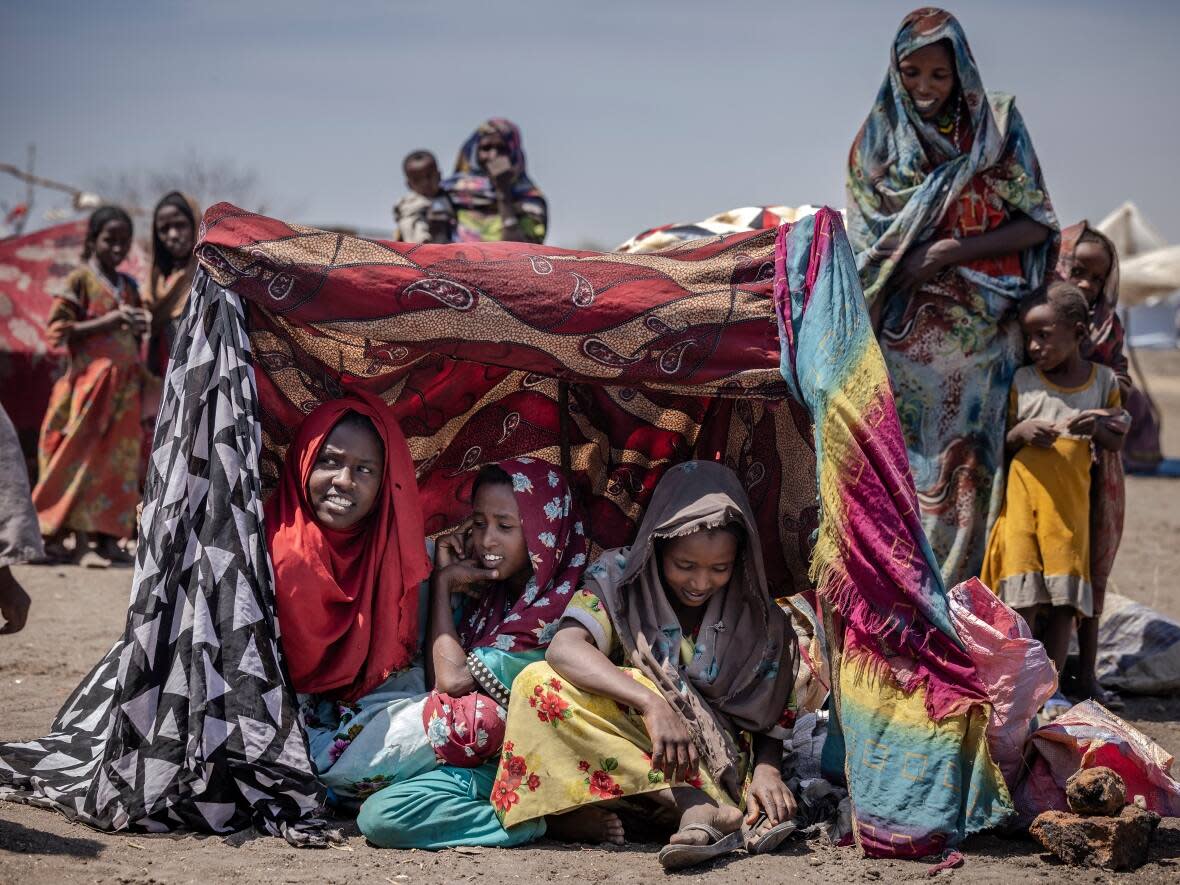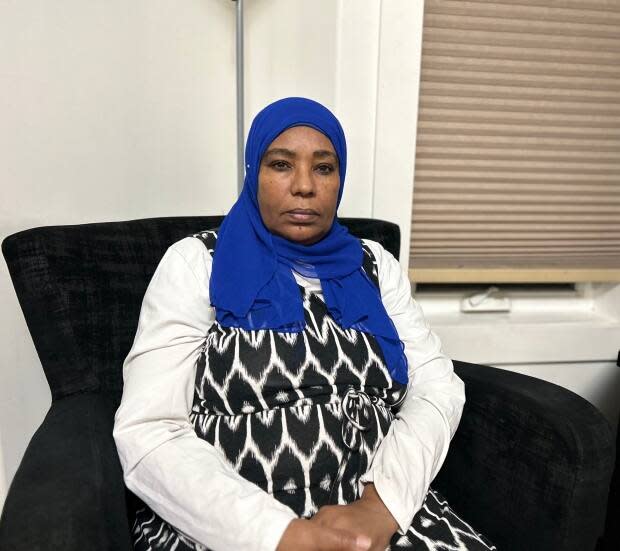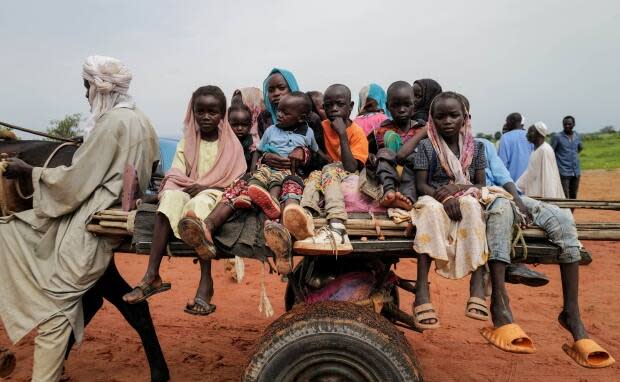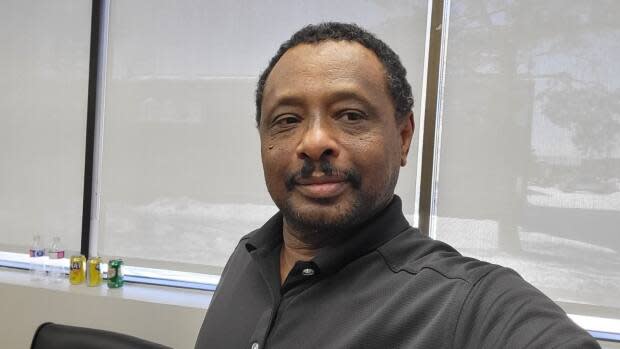Woman trying to bring family to Canada from Sudan using new pathway says requirements 'impossible' for some

Ebtsam Elsheikh says a new federal pathway meant to help families flee the war in Sudan and reunite in Canada offers her little comfort. She says she can't afford the requirements to bring family members to safety in Canada and — even if she could — it is too late for her brother.
The Saskatoon resident couldn't hold back her tears as she spoke about her brother, who died in Sudan on Feb. 8. Elsheikh received the news via text message from a cousin. She doesn't know how or where it happened, or what happened to her brother's wife and son.
Elsheikh now wants to bring three family members who are still in Sudan here to Canada.
"For me, it's impossible. I can't get anyone."

Sudan has been at war since April 2023, when clashes broke out between the army and the paramilitary Rapid Support Forces, crushing a planned transition to a civilian government.
Elsheikh said only one of her four brothers has managed to leave Sudan. She said he moved to Uganda.
"It's impossible to apply for any passport to travel out of Sudan. It's a lot of money, that's why they just fled to other cities. Everyone's running in different directions."
In December last year, Immigration Minister Marc Miller announced the launch of a family based permanent residency pathway for those affected in Sudan. The one-year program is open to the children, grandchildren, parents, grandparents or siblings of Canadian citizens or permanent residents. Each application can include one person and their immediate family members.
Guidelines for the program were posted on Feb. 23. They include minimum levels of income and/or savings required to act as an anchor for other people coming to the country.
Elsheikh said those guidelines won't allow her to bring even a single family member here.
She said she wants to sponsor her brother, who has two daughters older than 21. To do so, her total income from last year, plus any money she has in savings, must equal at least $51,128.
Elsheikh said she's been sending half of her income to her family in Sudan for them to have food on their table. She said she works for a "decent wage," but has no way to accumulate that money.
If her brother were to leave his daughters behind, Elsheikh's income and savings would only need to be $34,254.
She said these rules force a choice her family — and many other Sudanese Canadians — are not ready to make.
"My brother, he cannot leave his daughters behind and come to Canada. He cannot."
Elsheikh said the requirement for some documents can be a hurdle in a time of war — even if it's something as simple as getting a photocopy.
"There is no photo shop open in Sudan right now. We don't have the internet. We don't have contact. For a month and a half, I haven't had any contact with my family — I don't know if they're alive or dying," she said.

The situation has deteriorated rapidly since the war began. According to the Norwegian Refugee Council, the war has displaced nine million people inside Sudan — more displaced people than any other country in the world, including Syria and Ukraine — and another 1.7 million people have had to flee the country.
Meanwhile, Canada's new permanent residency pathway has a cap of 3,250 applications.
Immigration, Refugees and Citizenship Canada (IRCC) spokesperson Jeffrey MacDonald said in an emailed response that IRCC took into account concerns raised by community groups. As a result, it waived biometrics and the right of permanent residence fee, he said.
"This pathway has been designed to allow Canadian anchors who have the intention and the means to financially support their relatives for one year and facilitate their successful integration upon their arrival to Canada," the response said.
IRCC added that intake caps are "standard practice in public policies" and based on factors including available resources and other available immigration pathways.

The Sudanese Canadian Community Association (SCCA), based in Edmonton, said it was one of the groups the federal government consulted with. Imad Satti, director of SCCA, said he appreciates the initiative, but that there are shortcomings.
He said he hopes the federal government reduces the sponsorship costs and increases the number of people it takes in, along with calling for bigger change.
"We want [the government] to work with the international community to call Sudan a crisis area so that more countries can take in more refugees from Sudan. More importantly, we're asking for the government to push the international community to stop this war."
Satti also has family members in Sudan who he's trying to get here.
"Many people I know are homeless in Sudan, so it's caused a lot of stress on us. I couldn't sleep for many months and still, I am really affected by this."

